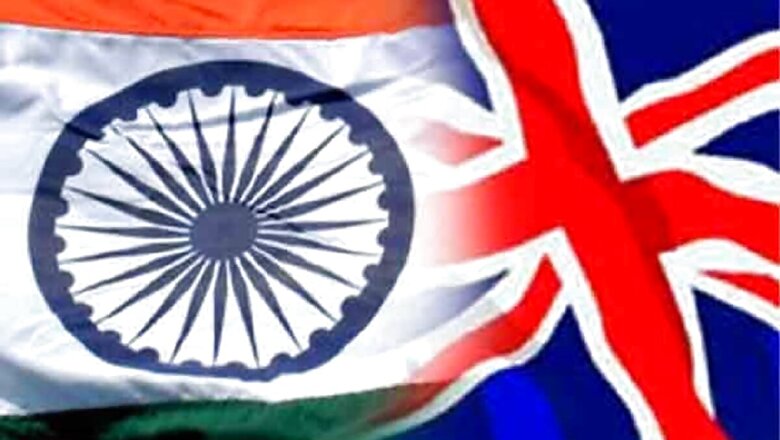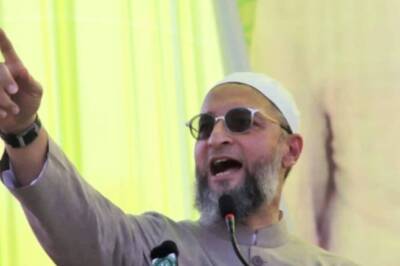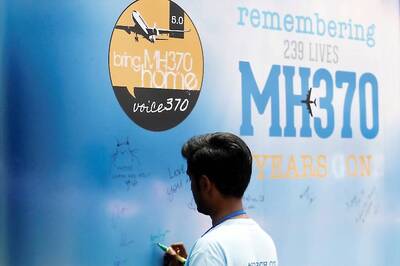
views
Indian-origin historians and campaigners have called for practical solutions to ensure a well-rounded approach to teaching all aspects of the British Empire to students in the UK.
During a webinar 'Reflections and Relevance of Heritage in the Modern Era' over the weekend, it was agreed upon that education through various media such as coursework, theatre and storytelling was the answer to a growing tide against colonial symbols and statues as part of the Black Lives Matter movement.
"A very practical and do-able suggestion would be to incorporate elements that reflect different aspects of the British Empire within the coursework," said Zehra Zaidi, a campaigner who leads the 'We Too Built Britain' campaign, which has received the backing of UK Chancellor of the Exchequer Rishi Sunak to incorporate ethnic minority figures on British coinage.
"What the Black Lives Matter movement has highlighted is that leaders and heroes can be flawed and therefore there is an urgent need to focus on our inclusive history and unite around common themes," she said.
The Black Lives Matter protests, which spread across the world following the killing of African-American George Floyd in the police custody in US in May, drew attention to the UK's slave trading and colonial past.
As a statue of the slave trader Edward Colston was pulled down from its plinth in the city of Bristol, the public attention was drawn to similar dubious symbols and led to petitions against other colonial era statues such as that of Robert Clive – referred to as Clive of India for his role in the colonisation of India – as well as the UK's war-time prime minister Winston Churchill's Parliament Square statue, which was targeted with graffiti by angry protesters.
"Politicians are always a complicated subject – there will be those who are heroes to some and not a hero to others. It is not practical to pull down every statue or memorial. The answer lies in education – colonial history has got to be a part of the syllabus, said Shrabani Basu, author of historical accounts such as Spy Princess: The Life of Noor Inayat Khan' and Victoria and Abdul'.
The webinar, organised on Saturday as part of the Bengal Heritage Foundation's new Think Tank series along with the Indian Journalists' Association in the UK, Kolkata Literary Meet and British Council, explored several strands around the theme of colonialism and its legacy.
"Recent events in the US raise pertinent questions around how we should see our history in the context of changing times. Whilst the discussion will be focussed on the shared history between the UK and India, the references will apply elsewhere in the world as we move further into becoming a global village," said Malavika Banerjee, the Director of Kolkata Literary Meet, who moderated the discussion.
Lady Kishwar Desai, the founder of the Partition Museum in Amritsar, said, "It is a fallacy to suggest that the new generation is not interested in history. We were pleasantly surprised when 1,500 people attended the launch of the museum in a hall meant only for 300.
"Youngsters recalled what their grandparents went through during the Partition. From humble beginnings of a couple of items, it has now grown to 14 galleries and won six awards."
The panelists agreed that a shift in perspective would help tell the stories of controversial aspects of history, such as the British Empire, with a more well-rounded approach.
"We have to shift the lens in interpreting culture," said Jonathan Kennedy, Director – Arts, British Council India. The webinar opened with a tribute organised by the Bengal Heritage Foundation (BHF) to Dwarakanath Tagore, best known for his significant role in the Bengal Renaissance of the 19th century, to mark his 174th death anniversary.
The event included a musical rendition of a song by Tagore's grandson, the Nobel Laureate Rabindranath Tagore, at a memorial in Kensal Green Cemetery in north-west London.
"Dwarkanath Tagore's pioneering work as an entrepreneur – first Indian having equal partnership with the British and that too in early 19th century – is so relevant in the post-Brexit world of Indo-British relationships.
"As BHF, we have focussed on the promotion of both tangible and intangible shared heritage over the years and the webinar was part of our continued effort to bring heritage into the mainstream discussions," said BHF president Sourav Niyogi.



















Comments
0 comment